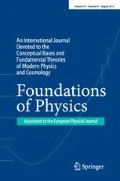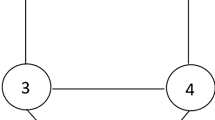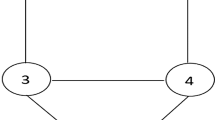Abstract
Max Planck introduced the concept of zero-point energy in spring 1911. In the early struggles to establish the concept of the energy-quantum, it provided a helpful heuristic principle, to guide as well as supplement the efforts of some leading physicists in understanding the laws that applied in the atomic domain. The history and growth of this concept, and its application in the general development of quantum theory during the past many decades are studied under three principal headings: (1) The Birth of the Concept of zero-Point Energy; (2) Does Zero-Point Energy Really Exist? and (3) The Ground State of Quantum Systems.
Similar content being viewed by others
Rights and permissions
About this article
Cite this article
Mehra, J., Rechenberg, H. Planck's Half-Quanta: A History of the Concept of Zero-Point Energy. Foundations of Physics 29, 91–132 (1999). https://doi.org/10.1023/A:1018869221019
Issue Date:
DOI: https://doi.org/10.1023/A:1018869221019




